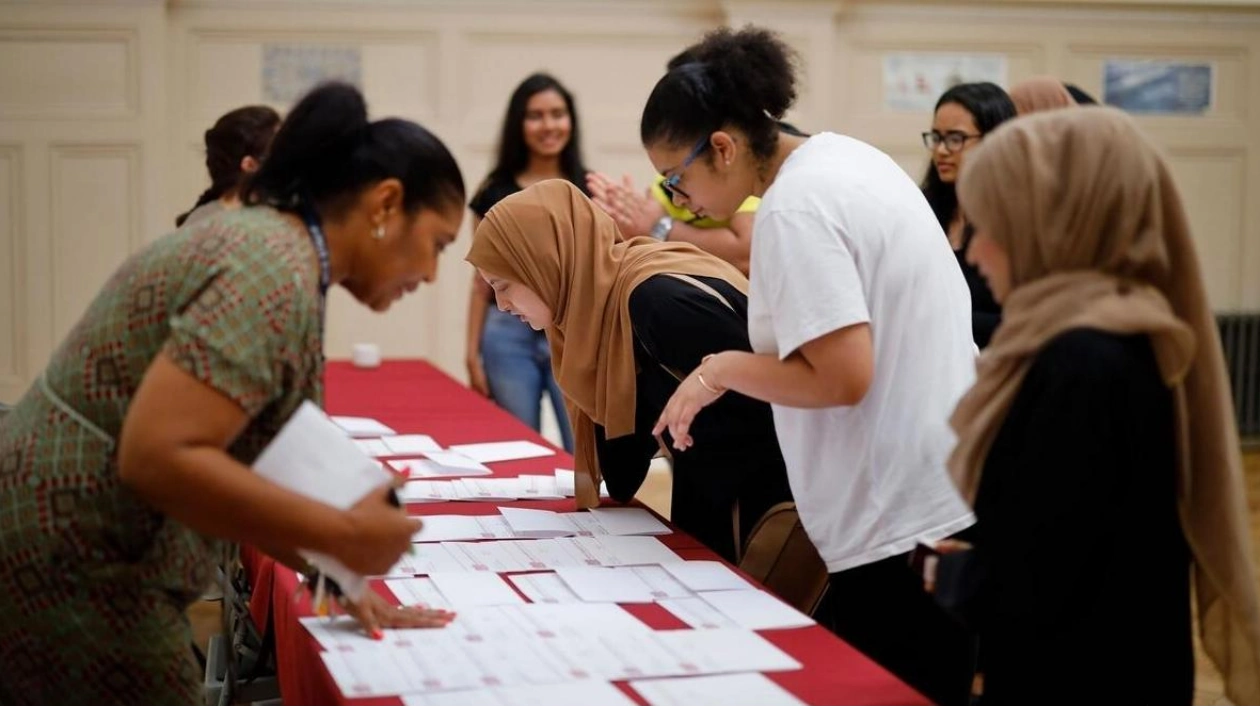On Thursday, August 15, a significant day for numerous students in the UAE, the A-Level exam results were revealed, marking the beginning of their journeys to prestigious universities both locally and internationally for those who achieved high scores. Celebrations erupted among students, friends, and families, while educators praised the exceptional accomplishments of their pupils securing spots at their preferred colleges.
However, not all plans unfolded as expected, with some students falling short of their desired grades. In such cases, what lies ahead in their academic path? Natalie Humphrey, Deputy Director of Operations at the University of Birmingham Dubai, offered some tried-and-true advice to Khaleej Times, emphasizing that career success is seldom a straight line and is not solely determined by academic scores.
Humphrey advised those who did not meet their expectations to pause and breathe. Reflecting on the results is crucial to understand their implications for future academic aspirations and plans. A clear-headed assessment enables informed decisions about the next steps.
She also highlighted the value of clearing and adjustment for students who did not meet their initial university offers. Exploring alternative programs or universities that match interests and skills might reveal the right course at a different institution or in a new field.
Additional tips from the University of Birmingham Dubai include considering a foundation year, which many universities offer as a transition from high school to undergraduate studies. Even with lower initial grades, universities often accept students onto foundation years to prepare them for their chosen degree courses.
Looking beyond the first-choice university is also encouraged, as the UAE hosts some of the world's most competitive universities offering courses in promising sectors such as computer science, AI, engineering, and business administration. Gaining practical experience through internships, work placements, or volunteer work can enhance one's CV and help clarify future directions.
Seeking expert advice from educational counselors, school career advisors, or university admissions teams is another valuable step. These experts are dedicated to supporting students during such times and can help navigate available options.
Reassessing goals and aspirations is also important, as setbacks can often be catalysts for growth. Exploring other potential career paths based on passions, strengths, and skills can open new opportunities.
Most importantly, maintaining resilience and a positive mindset is key to navigating the often undulating path of modern career journeys. A-level results day might not go as planned, but overcoming setbacks and adapting to unforeseen situations is often what leads to the most successful outcomes.
Disha Laungani-Gidwani, Head of Business Development & Engagement at the University of Birmingham Dubai, emphasized that resilience, adaptability, and problem-solving skills are increasingly valued by employers and universities. She advised students who missed their target grades to consider foundation programs and engage in extracurricular activities to boost their university applications and gain clearer career direction.
Lewis Hammill, Deputy Head of Secondary at GEMS FirstPoint School – The Villa, reminded students that grades or university names do not define their worth or potential. He encouraged them to stay true to themselves, follow their passions, and trust in their journey, with their school continuing to support them.






